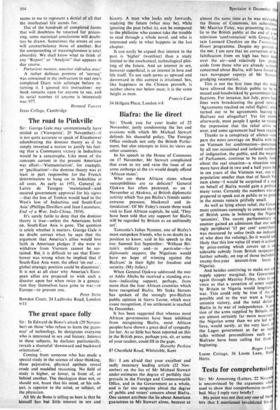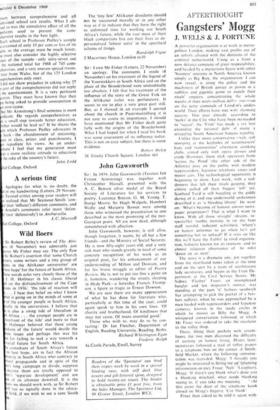Tests for comprehensive
Sir: Mr Armstrong (Letters, 22 NoNern is unconvinced by the arguments wh used to show that comprehensive results bad. May I reply very briefly? My point was not that any one of the ters that I mentioned invalidated his
rison between comprehensive and all Untained school GCE results. What I ob- :ted to was the cumulative effect of all the pedients used to present the conn- ehensive results in the best light.
Each school in Professor Pedley's sample
,s creamed of only 10 per cent or less of its 'pas. so the average must be much lower. fie must also consider the highly selective iture of the sample—only sixty-seven out
the national total for 1968 of 745 corn- thensives, and a very uneven spread (twen- -four from Wales, but of the 135 London oprehensives only one).
I did not show prejudice in asking why 27 1 cent of the comprehensives did not reply the questionnaire. It is a very pertinent estion. They must have known that they re being asked to provide ammunition in it own cause.
But Mr Armstrong's final sentence is most nificant. He regards comprehensives as ly a small step towards better education. ither would he lead us? If he shares the Is which Professor Pedley advocates in book—the abandonment of streaming, ces in class, prizes and punishments. I t repudiate his views. As an under- duate I feel that my generation must pt a more realistic attitude to education the sake of the country's future.







































 Previous page
Previous page